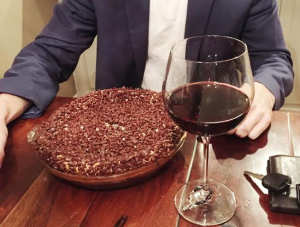I remember the day my grandma brought over a jigsaw puzzle for me and my cousins to do. We were excited, mainly because we got to work on it together. It was a lot of fun, but I must admit that I wasn’t very good at it. My cousins would always finish their pieces before I did and always laugh at me.
But I didn’t mind. I kept coming back to that puzzle because it was so much fun. And as I continued to do puzzles, my skills gradually improved. Doing puzzles has helped me maintain my memory over the years.
There are several reasons why puzzles are great for your brain:
Photo by Sharon Snider
Puzzles Help Keep Your Brain Active and Engaged
Today, I am an expert at puzzles because my grandma motivates me to be one. The old lady always loved doing jigsaw puzzles. She had a room in her house filled with puzzles. They ranged from small 4-piece puzzles to huge 1000-piece ones. She would often spend hours upon hours assembling them, and as a child, I often went into her room and watched her work.
At first, I thought it was just a boring older woman’s hobby. But as I got older, I began to understand why my grandmother loved playing puzzle games so much.
When you do a jigsaw puzzle, including online jigsaw puzzles, your brain is constantly working – figuring out where each piece goes, how the picture is supposed to look when it’s finished, and so on. It’s like a mental workout that keeps your brain active and engaged.
It To Help Improve Problem-Solving Skills and Critical Thinking Abilities
Photo by Tara Winstead
I would never have guessed that doing jigsaw puzzles could help improve my problem-solving skills and critical thinking abilities, but it turns out that’s precisely what happens.
I was always a bit of a puzzle enthusiast, so when I saw an ad for a new jigsaw puzzle game online, I decided to try it. The game was fun and challenging to figure out how to piece the different pieces together.
And can you guess what the jigsaw puzzles were all about? Piecing together that beautiful image of a country landscape.
It all started when my boss asked me to look through some data sets and see if I could spot any patterns. At first, I was struggling – I just couldn’t seem to focus on the numbers. But then I remembered how much fun it was when I used to do jigsaw puzzles with my grandma as a kid. So I decided to try doing a puzzle while looking at the data sets. Suddenly, the patterns started jumping out at me. After that, I could complete the task quickly and even found errors in the data set that my boss was grateful for.
Puzzles Help Improve Focus and Concentration
Since I have always loved doing puzzles as a kid, I see no big deal in playing any game, unlike my friends. If there is one thing that constantly buzzes me, all my friends I have introduced to playing puzzles often give up after 2-3 weeks. However, I failed to understand that they aren’t like me, who grew up playing the game.
Now, as an adult, I still love doing puzzles. I’ll usually do a puzzle while watching TV or listening to music. And I’ve found that it helps me focus and concentrate on the task. It’s one of the ways that I like to relax and clear my mind after a long day at work.
The best part is that it’s not just me who has benefited from doing jigsaw puzzles; my husband has too! He used to be someone who always had trouble focusing on tasks, but since he started enjoying jigsaw puzzles regularly, his concentration has improved dramatically.
Some people might think that doing puzzles is a waste of time, but I beg to differ. For me, it’s a way to improve my focus and concentration – something that comes in handy at work and home.
Jigsaw Puzzles Can Help Improve Recall Ability
My husband is a computer programmer. He’s brilliant, and he’s always been excellent at developing code and logic for programs. However, over the years, his work has become more stressful because he has to meet deadlines and ensure his code is error-free.
He would come home from work angry and exhausted, which was taking a toll on our relationship. I knew I needed to find a way to help him relax and de-stress, so I suggested we start doing jigsaw puzzles together.
At first, he was hesitant. He thought it sounded like a waste of time. But I told him I’d do them with him, so he had someone to help keep him on track.
We found a puzzle of a beach scene and started putting it together. It was relaxing to work on the puzzle together. My husband found that he could remember the logic of the program he was developing after spending an hour or two putting together a jigsaw puzzle. I think it’s because the process of doing a jigsaw puzzle simultaneously exercises both sides of his brain- the logical, problem-solving side and the creative side.
Needless to say, my husband is now a big fan of jigsaw puzzles. We’ve even started collecting different puzzles to do together in our spare time. Now, whenever he’s stressed out at work, he takes a break to do a jigsaw puzzle, which helps him calm down and focus better.
Nowadays, whenever our schedules get too busy for regular conversation, we’ll break out the puzzles as a way to reconnect. It’s become a tradition for us, and I’m grateful my husband gave it a try every day.
Doing puzzles isn’t just fun – it can also help improve your memory recall ability. Researchers found that adults who did puzzles regularly had better recall skills than those who didn’t do puzzles. So if you’re looking for a way to boost your brainpower, consider picking up a jigsaw puzzle!
Photo by Ann H
The Bottom line
Jigsaw puzzles are a fun way to keep your brain active and help maintain a memory. Playing puzzles has numerous benefits, and so as you become more comfortable with playing puzzles and see improvement in your memory, gradually increase the number of pieces in each puzzle. If you want to start doing jigsaw puzzles to preserve your memory, we recommend choosing ones with few details first.
Have fun and keep your mind healthy by doing some jigsaw puzzles today.


